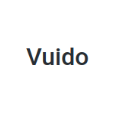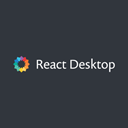Uncovering the Best Proton Native Alternative for Your Desktop App Development
Proton Native provides a compelling React-based environment for crafting native desktop applications, much like React Native empowers mobile development. It boasts the same syntax as React Native, compatibility with existing React libraries like Redux, cross-platform support, and native components. However, for various reasons—whether it's specific feature needs, platform preferences, or a desire for different architectural approaches—developers often seek a robust Proton Native alternative. This guide dives into the top contenders, helping you find the perfect fit for your next desktop application project.
Top Proton Native Alternatives
While Proton Native offers a great solution, a rich ecosystem of development tools exists. Here are some of the best alternatives that provide unique advantages for building powerful desktop applications.

Electron
If you're comfortable with web technologies, Electron is an excellent Proton Native alternative. It allows you to build native applications using JavaScript, HTML, and CSS, effectively turning your website into a desktop app. Electron offers cross-platform support (Mac, Windows, Linux), native application capabilities, and robust web development features, making it a powerful choice for those with web development expertise.

NW.js
Formerly known as "node-webkit," NW.js is another strong open-source Proton Native alternative based on Chromium and Node.js. It enables you to write native apps using HTML and JavaScript, providing developer tools and web development features across Mac, Windows, and Linux. This makes it a great option for web developers looking to transition to desktop app creation.

Vuido
Vuido stands out as a lightweight, open-source Proton Native alternative, particularly if you prefer Vue.js. It combines the simplicity of Vue.js with the open-source libui library to create native desktop applications. Vuido supports Mac, Windows, and Linux, offering a cross-platform solution for Vue.js developers.

WebDGap
WebDGap is an open-source tool that allows you to convert any web application into a native Windows, Linux, or Mac OS X desktop application. It acts as a lightweight wrapper and compiler, offering a simple and quick way to get your web app running on the desktop. It's a versatile Proton Native alternative for developers wanting to reuse existing web code.

DeskGap
DeskGap is a free and open-source framework for building cross-platform desktop apps using web technologies like JavaScript, HTML, and CSS. It's a solid Proton Native alternative for developers familiar with web development, providing desktop app functionality on both Mac and Windows.

fman build system
The fman build system is an open-source framework for creating desktop apps for Windows, Mac, and Linux. Based on Qt and Python, it presents a lightweight Proton Native alternative, especially for Python developers. Unlike other solutions, fbs focuses on simplifying the build process.

Chromely
Chromely serves as a lightweight, open-source Proton Native alternative for .NET/.NET Core developers. It allows you to build desktop apps with web technologies, featuring React support and cross-platform compatibility across Mac, Windows, and Linux. It's an excellent choice for those within the Microsoft ecosystem.

azula
azula is a lightweight, open-source Proton Native alternative specifically for Windows. It's based on Ultralight, a WebKit fork known for its lower memory usage and small disk space footprint, making it ideal for resource-conscious desktop applications.

React Desktop
React Desktop is a free and open-source JavaScript library built on top of React, aiming to bring a native desktop experience to the web. While primarily web-focused, its components mimic macOS and Windows UI elements, making it a good choice for those seeking a desktop-like feel for web applications or considering a Proton Native alternative for prototyping native UIs on the web.
The landscape of desktop application development is rich with diverse tools. While Proton Native offers a fantastic React-centric approach, these alternatives provide compelling options for various needs, whether you prioritize web technologies, specific programming languages, or lightweight solutions. Explore these options to find the best fit that aligns with your development workflow and project requirements.